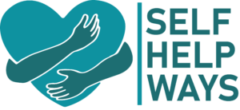The big day arrives: the job interviews in sight. You have everything prepared: the suit that you are going to wear, the hairstyle that you will wear, the answers that you will give when they tell you that you would stand out from you and you have even printed a curriculum vita to take it on paper. But, have you practiced what you will do with your hands in the job interview? How will you greet the person who is going to interview you? Will you remember not to cross your arms? Body language transmits a lot of information about you, so you have to take care of small details like those described above if you do not want to ruin this job interview that you were waiting for so much.
The power of body language in a job interview
Did you know that your body language also expresses emotions? If you are sad, if you are happy or if you are a flan that tries not to wobble too much. Pay attention to certain gestures that we usually do without realizing it and that can lead you to success or failure in a job interview.
Avoid eye contact
The fact of looking into space during a job interview makes the other person have an inaccurate image of you, thinking that you are unreliable. Tip: practice with a friend or acquaintance.
Fidget
It is something very typical, and it is that the stress generated by facing a job interview causes us to be restless and make movements with our hands, fingers, head or legs. Touching hair, nose or other types of gestures indicate insecurity. Tip: Cross your hands and place them in front of you when you’re not speaking to avoid spontaneous movements.
Do not smelling
What do you think when a stranger on the street smiles at you? You leave with a good taste in your mouth, right? Apply this to a job interview and smile the first time you see the person who is going to interview you, also during the development of your conversation and at the end. It will help you reduce stress and anxiety at this time. Otherwise, he will think that you are unhappy and unsociable.
Weak handshake
A weak handshake generates negative feelings in the other, such as little enthusiasm for the position and a certain distrust and conformism. Before the big day, squeeze a family member’s hand and practice so it’s not too loose, but not too tight either, and when you do, always look into the other person’s eyes!
Stoop
Do you want to convey that you are a strong and powerful woman? Watch your posture! Interviewers pay close attention to this slouching detail because it is very characteristic of weak people with low self-esteem. Tip: be careful when you sit down. Place your back against the back of the chair and your bottom well back. The interview can begin, you are ready!
Crossing arms
The anguish that is created by knowing what the result of this selection process will be makes the interviewee often cross their arms, adopting a defensive attitude, but what if they are not attacking you? Tip: Place one hand on the table and the other on your lap, but always where it can be seen. Never hide your hands!
Head seating continued
During job interviews it is difficult to control the movements of our head and we tend to move it making the gesture of yes. Do you know what this action means? What are you looking for and need the approval of the other? Also that you are not understanding what they are telling you or that you are not even listening. Tip: control this gesture and try to just nod your head a couple of times to convey the message that everything is clear to you.
How to make a good impression in a job interview?
- What to do then? Here are four simple tips that will guarantee you a good impression at your next job interview:
- When you walk into your “future company”, keep a straight and upright posture. This will make others see you as a person with self-esteem, confident and with the ability to carry out tasks of high responsibility, if that were the case.
- It shows feelings and emotions. If the interviewer tells you something funny, don’t stay still and static, it reflects that you found that comment pleasant.
- Listen carefully. Make small movements (you can’t look like a block all the time), look into the interviewer’s eyes, summarize what he has told you or ask questions that you have from time to time (it is not a question of abusing either) to show that you are active in the conversation and that you are finding out everything he tells you or tells you.
- Leave a good impression. When you’re done, don’t be in a hurry to leave the room. Take your belongings calmly, shake hands with the other person and smile before saying goodbye. The memory you leave will be very positive.
